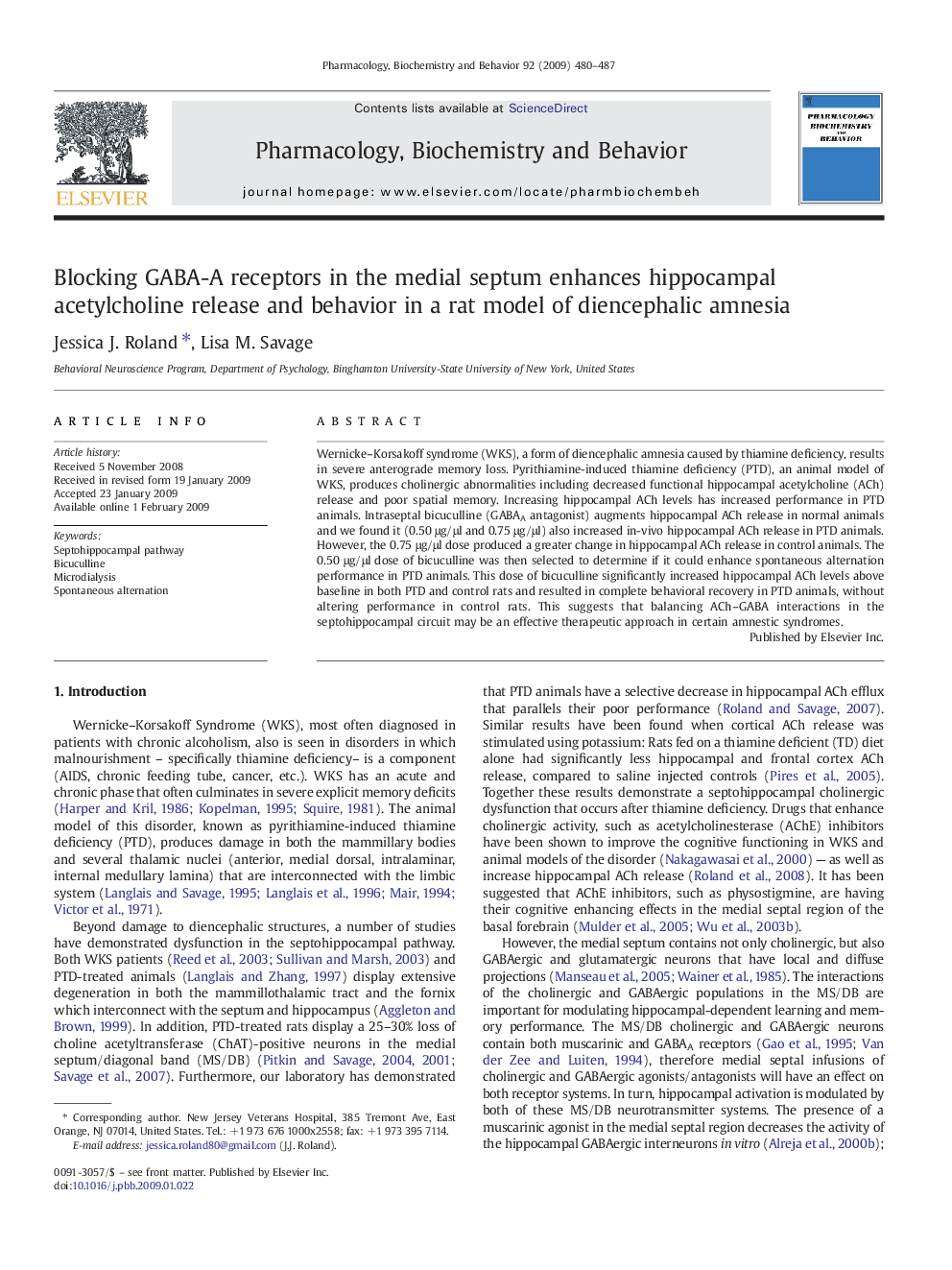| Article ID | Journal | Published Year | Pages | File Type |
|---|---|---|---|---|
| 2013745 | Pharmacology Biochemistry and Behavior | 2009 | 8 Pages |
Wernicke–Korsakoff syndrome (WKS), a form of diencephalic amnesia caused by thiamine deficiency, results in severe anterograde memory loss. Pyrithiamine-induced thiamine deficiency (PTD), an animal model of WKS, produces cholinergic abnormalities including decreased functional hippocampal acetylcholine (ACh) release and poor spatial memory. Increasing hippocampal ACh levels has increased performance in PTD animals. Intraseptal bicuculline (GABAA antagonist) augments hippocampal ACh release in normal animals and we found it (0.50 μg/μl and 0.75 μg/μl) also increased in-vivo hippocampal ACh release in PTD animals. However, the 0.75 μg/μl dose produced a greater change in hippocampal ACh release in control animals. The 0.50 μg/μl dose of bicuculline was then selected to determine if it could enhance spontaneous alternation performance in PTD animals. This dose of bicuculline significantly increased hippocampal ACh levels above baseline in both PTD and control rats and resulted in complete behavioral recovery in PTD animals, without altering performance in control rats. This suggests that balancing ACh–GABA interactions in the septohippocampal circuit may be an effective therapeutic approach in certain amnestic syndromes.
